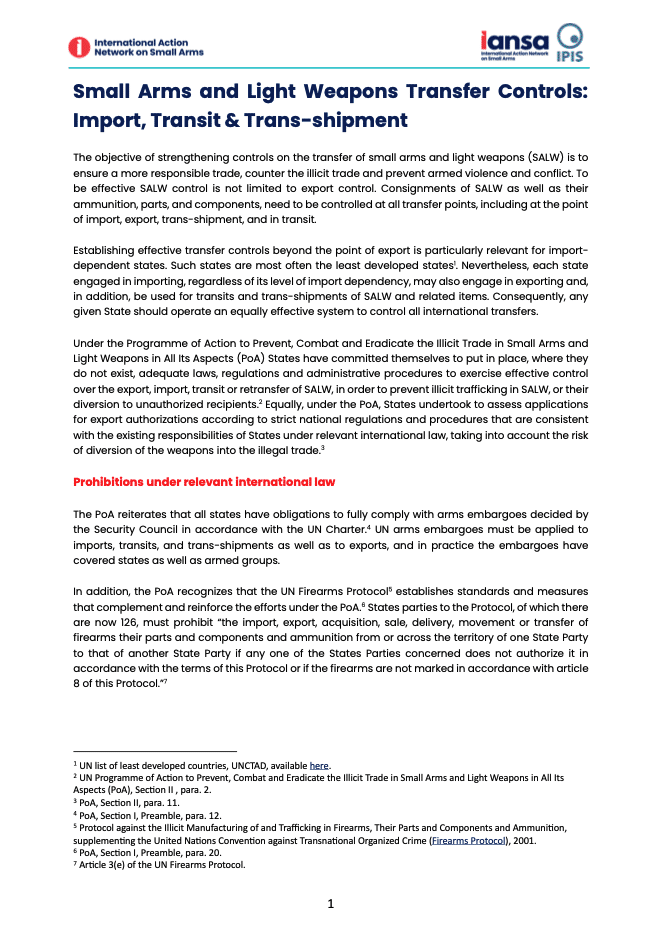The objective of strengthening controls on the transfer of small arms and light weapons (SALW) is to ensure a more responsible trade, counter the illicit trade and prevent armed violence and conflict. To be effective SALW control is not limited to export control. Consignments of SALW as well as their ammunition, parts, and components, need to be controlled at all transfer points, including at the point of import, export, trans-shipment, and in transit.
Establishing effective transfer controls beyond the point of export is particularly relevant for import-dependent states. Such states are most often the least developed states. Nevertheless, each state engaged in importing, regardless of its level of import dependency, may also engage in exporting and, in addition, be used for transits and trans-shipments of SALW and related items. Consequently, any given State should operate an equally effective system to control all international transfers.
In this factsheet, IPIS and IANSA highlight prohibitions under relevant international law; expand on the duty to regulate imports, transits and trans-shipments; define import, transit and trans-shipment; list regulatory and enforcement practices; and provide recommendations for states.
Picture: Containers of export travel cargo – Pixabay



